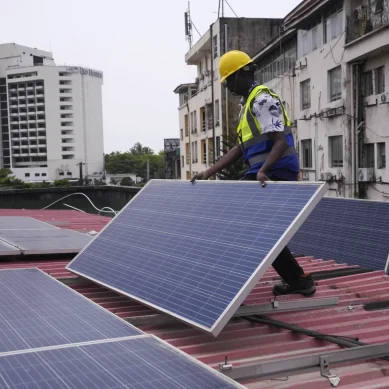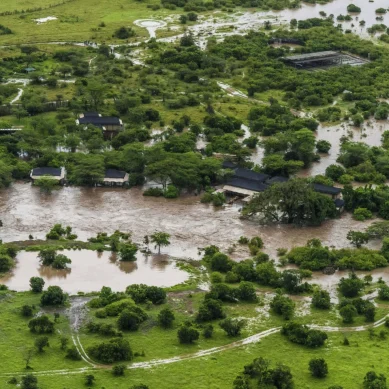Central Kenya has for decades been synonymous with coffee farming in the same way western Kenya is with sugarcane.
However, some farmers in Bungoma as is the case with parts of neighbouring Kakamega and Vihiga counties, have been diversifying into coffee farming and are determined to increase production to raise their household incomes.
Sugarcane was once a major source of income for many households in Bungoma with Nzoia Sugar factory the main buyer of the cane. Saddled with heavy debts, the factory has for over two decades been in the red financially, hence unable to pay famers. Some farmers responded to the financial crisis at the miller by uprooting their crop and replacing it with maize or other early maturing food crops.
As the crisis persists, a number of farmers are weighing other options, with coffee previously grown on smallholdings becoming a viable alternative to sugarcane. The expansion of coffee in Bungoma, which is endowed with rich volcanic soils, signals central Kenya that competition is building up in western Kenya.
Coffee, especially robusta variety grows naturally in bushes, including forests in western Kenya. However, it is the arabica type that coffee farmers in Bungoma are eyeing for higher returns. The variety enjoys global reputation for its quality and strong aroma that have earned it demand worldwide.
Coffee is the Kenya’s fourth major foreign exchange earner after tourism, tea and horticulture. Earnings hit 15.9 billion in the 2017-2018 season.
Coffee thrives in areas with plenty of rainfall, between 1,000 and 2,000mm per annum, warm weather and mineral-rich volcanic soils.
Rinah Kakai Khaoma, a farmer in Sirisia constituency, grows coffee on one-and-a-half acres of land. She has a total of 450 coffee bushes.
Ms Khaoma says that, when the crop is managed well, she harvests 50 kilogrammes per stem per year, which translates to about 22,500 kilogrammes per year. She sells it at Sh40 (US$0.4) per kilogramme, earning her Sh880,000 (US$8,800) per year.
According to the farmer, coffee is labour-intensive, but has the potential to give a farmer good returns on investments. She notes that coffee allows intercropping – a can grow beans, maize and vegetables on the same plantation with coffee.
But it comes with challenges that must be overcome. These include, unreliable rainfall patterns, depletion of nutrients from the soil, pest and disease control that adversely impact on the yield. High cost of labour, coupled with high cost of inputs, poor roads and high transport costs because of poor roads affect a farmers’ returns.
The high of production notwithstanding, the farmers are determined to use modern farming methods to improve their yield.
Joseph Nambakha a cherry clerk at Sibumba Factory who doubles up as a coffee farmer says the varieties commonly grown in Bungoma are K7, Ruiru11, SL28 and Batian.
Mr Nambakha says that, despite the county government providing seedlings to farmers to raise production, the farmers are discouraged by millers’ low prices. The situation is made worse by cartels who smuggle the coffee to Uganda.
“We lose coffee berries and incur huge losses in factories because some farmers take the seedlings from us and when the coffee is ready, they smuggle it to Uganda,” he said.
He said Bungoma has favourable climatic conditions and fertile soils ideal for coffee farming to earn the country the much needed foreign exchange and to create employment and raise standards of living.
Bungoma County Crops Officer, Teresia Ndirangu says the county has established a sub-station in Namwela for research on soil, coffee planting materials and advisory services and farmers’ co-operative movement.
“We have installed two coffee milling plant at Musese and Chesikaki to improve coffee farming and processing,” Ndirangu explains.
The crop officer says farmers from the county will start reaping more benefits when a new factory set for construction in Kakamega County becomes a reality.
Another coffee factory will be constructed at Kibuma Coffee Factory next to Bukura Agricultural College in Butere Sub-county in Kakamega County to support counties in western that grow coffee.
The project has been given a nod by Kakamega, Bungoma, Busia and Vihiga governors and is expected to be ready by June this year .











